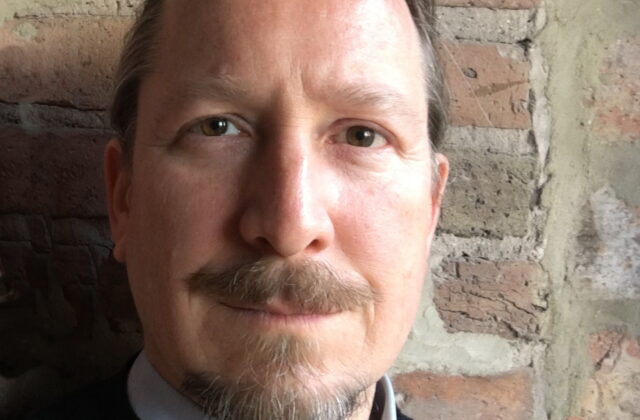Project title
Making finance meaningful: Co-producing Islamic banking and finance in Malaysia
Research question
Drawing from ethnographic research in Malaysian Islamic banks, how are investment bankers and Shariah scholars co-producing an alternative form of finance? What do we learn from their work about how to distinguish empowering from exploitative finance? And how do these work experiences inform us about secular projects to alter the trajectory of finance capitalism?
Project description
Critiquing finance presupposes understanding. One cannot accurately critique—much less regulate, reform, or replace—something that one does not understand. This truism is particularly perplexing for moral critics of finance, as well as critical social scientists and autonomous regulatory bodies, because there are wide structural asymmetries of knowledge between these outside observers and financial experts. Given the pervasive and growing influence of finance in society, it is important for the public and public intellectuals to be capable of understanding, critiquing, and potentially controlling the finance industry. Over the past decade, I have conducted research in global Islamic investment banks in Malaysia to understand how investment bankers and religious scholars are attempting to bridge the gap between their worldviews and attempt to alter the trajectory of finance.
Previous research in Malaysia has examined how Islamic banking and finance has been guided and promoted by decades of leadership in government, universities, think tanks, and regulatory bodies such as the Central Bank. These accounts are an important explanation that my research draws on and contributes to. However, in contrast to these “top down” explanations, my methodology examines the prosaic and often contentious “bottom up” production of new forms of finance within Islamic investment banks. Complementing earlier research that I have conducted on professional investor behavior in Malaysia’s conventional financial markets, in 2012, 2013, and 2019, I conducted approximately fifty, focused, ethnographic, tape-recorded interviews with investment bankers and Islamic experts in ten investment banks. The interviews focus on my interviewees’ work constructing “sukuk,” a class of financial instrument developed over the past decade as a moral replacement for sovereign and corporate bonds. These banks form the super majority of the domestic sukuk market and half of the international sukuk market. Sukuk are viewed as a crucial element in building a global, transnational, alternative Islamic financial system. The novelty of this research’s “bottom up” methodology is in examining how these diverse parties communicate with one another to critique finance and contentiously coproduce Islamic finance before the innovations are institutionalized by state actors.
During my NIAS fellowship, I am writing a book that contributes to interdisciplinary conversations that seek to distinguish empowering from exploitative finance and to contribute to understanding how to alter the trajectory of finance towards the former.
Selected publications
Pitluck, Aaron Z. 2020a. “Altering the Trajectory of Finance: Meaning-Making and Control in Malaysian Islamic Investment Banks.” Pp. 111-35 in Financialization: Relational Approaches, Vol. 6, Max Planck Studies in Anthropology and Economy, edited by C. Hann and D. Kalb. New York and Oxford: Berghahn.
Pitluck, Aaron Z. 2020b. “Intellectual Brokerage in Economic Theology: Methodological and Theoretical Reflections from Islamic Banking and Finance.” Pp. 379-90 in The Routledge Handbook of Economic Theology, edited by S. Schwarzkopf. London: Routledge.
Pitluck, Aaron Z., Fabio Mattioli and Daniel Souleles. 2018. “Finance Beyond Function: Three Causal Explanations for Financialization.” Economic Anthropology 5(2):157-71.
Pitluck, Aaron Z. 2016. “The Convergence Paradox of Islamic Finance: A Sociological Reinterpretation, with Insights for Proponents of Social Finance.” Pp. 364-80 in Routledge Handbook of Social and Sustainable Finance, edited by O. Lehner. Basingstoke: Routledge.
Pitluck, Aaron Z. 2013. “Islamic Banking and Finance: Alternative or Façade?” Pp. 431-49 in The Oxford Handbook of the Sociology of Finance, edited by K. Knorr Cetina and A. Preda. Oxford: Oxford University Press.
More about myself
Aaron Z. Pitluck is a professor of sociology at Illinois State University and currently serves as the president of the International Sociological Association’s Research Committee on Economy and Society (ISA RC02). Drawing on political economy and cultural analysis, his research interests center on financial actors, organizations, markets, and institutions, particularly in the Global South. His publications have explored professional investor behavior in equity and debt markets, and explored how moral and ethical norms, beliefs, and values constitute markets. His current project investigates how investment bankers, Shariah scholars, and the state are co-producing Islamic banking and finance, particularly in Malaysia.
